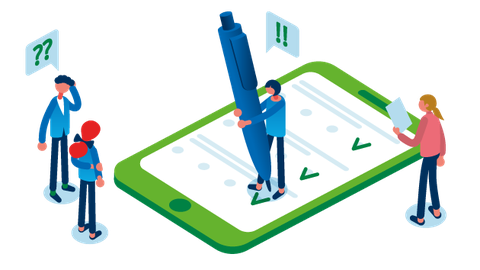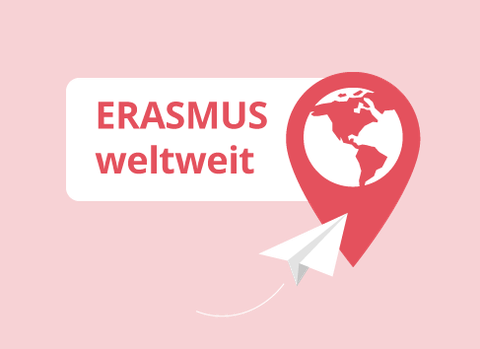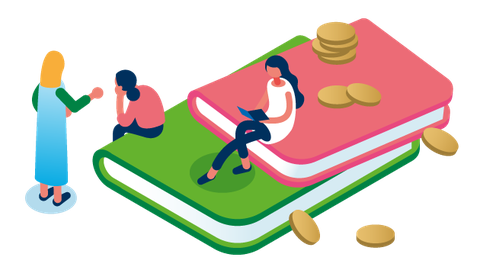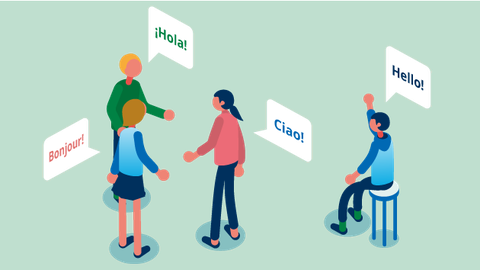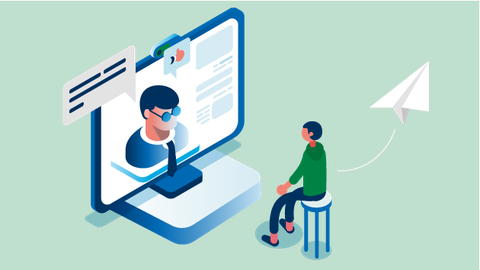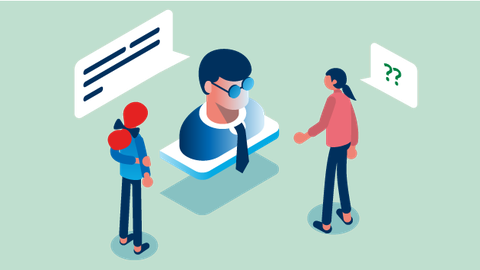ERASMUS
Table of contents
- 1. your place in the world
- 2 Get out into life: How a stay abroad broadens your horizons
- 3rd application: Let's go!
- 4. funding: You can count on this support
- 5. preparatory language courses / online language support (OLS)
- 6. FAQ - Further information
- 7. testimonials - what other students say
- 8. what happens after you have been accepted?
- 9. contact persons and application deadlines in the faculties
- 10. contact at the International Office
1. your place in the world
The ERASMUS exchange program enables you as a student:at TUD Dresden University of Technology to spend short or long-term stays within the EU and in selected partner countries worldwide. During this time, you will receive financial and organizational support. More than 800 exchange places at partner universities are available each semester.
For information on Erasmus+ exchange places worldwide, please visit the Erasmus+ worldwide program website.
Here we will inform you about the news in the Erasmus program: announcements, testimonials, Corona updates and how you can contact us most easily.
- ERASMUS exchange slots at the faculties
- ERASMUS contact persons in the faculties + application deadlines
- Erasmus brochure 2025 (DE only)
- Going abroad with ERASMUS ✈️ | At work with ... Kerstin Unger
- Partner Country of the Month
- Photo competition 2025/26: Packed well for traveling abroad – Interrail ticket to be won!
2 Get out into life: How a stay abroad broadens your horizons
Get out of the study rut. See the world. Learn or perfect a foreign language. Get involved with other cultures and mentalities. Expand your own network with international contacts - there are many different reasons to go abroad for a few months or a whole year with ERASMUS. You can also find some personal impressions and inspiration in the experience reports of TUD students who have already spent a semester abroad with Erasmus.
We at the International Office of TU Dresden will support you from the application to the steps you take after you have been accepted; you can find a compilation of the most important information in the ERASMUS checklist. The Mobility Online Portal (mobility portal) will guide you easily through the individual steps. But formalities are not everything. To ensure that your time abroad is a professional and personal benefit, here are a few practical tips to help you on your way:
-
Find a shared flat with locals
-
Take part in excursions, get-togethers and buddy programs to get to know the country and its people
-
Don't just take Erasmus courses at university, but also regular seminars
-
Get involved in local clubs and initiatives
-
Learn not only the language of instruction, but also the local language
The ERASMUS Charter for Students informs you about your rights and obligations.
Good reasons especially for student teachers
When you go abroad with ERASMUS, you gain a lot of life experience and mature as a person. Anyone who has seen something of the world and can report on it first-hand enjoys respect - a benefit for anyone who will soon be standing in front of a class and teaching young people. In addition, stays abroad are becoming increasingly important for all student teachers due to the growing cultural heterogeneity of school classes in Germany. And last but not least, the insight into new teaching and learning methods will help you on your way.
Good reasons especially for engineering students
One in four jobs in Germany depends on exports. Accordingly, internationally experienced, cosmopolitan employees are in demand. If you can conduct negotiations in English or French and are familiar with other legal and market systems, you will have a trump card up your sleeve at the job interview. But ERASMUS will also help you in the long term: one in three companies say that graduates with international experience are better at their jobs than those without international experience.
Are you studying a different subject? We are sure that there are also good reasons for studying abroad. ERASMUS is for everyone!
Good reasons especially for students with limited opportunities
The current generation of Erasmus programs aims to promote equal opportunities, inclusion, diversity and fairness in all areas. TU Dresden also sees itself as an inclusive university where being different is a matter of course, see the services offered in the TUD's equal opportunities section.
For Erasmus-funded study visits, students with disabilities or chronic illnesses, students with child/children, students from non-academic parents and working students can apply for a monthly top-up amount, see 4. funding: You can count on this support.
3rd application: Let's go!
Prerequisites
- Enrollment at the TU
You must be enrolled as a student at TU Dresden for a full degree program. This can also be a doctoral program. - Study progress
Are you enrolled in an undergraduate degree program? Then you must have completed the first year of study. This restriction does not apply to Master's students. - Good academic performance
You should have a good academic record at the time of your application. Specific grade requirements are not defined. - Language skills
Your language level in the language of instruction should be good enough for you to follow the lectures and seminars at the partner university.
Application process: Easier than expected
Don't worry: you don't have to overcome any major bureaucratic hurdles for your application. You find out about the application criteria from the ERASMUS representative or ERASMUS subject coordinator in the faculty, select the ERASMUS place you want and apply online via the mobility portal between January and March for the following academic year. A guide for the application part 1 will help you with the first application steps (you can find the guide for the application part 2 under What happens after you have been accepted).
Your application should include the following documents:
- Proof of previous study progress (e.g. overview of grades)
- Curriculum vitae in tabular form
- Proof of knowledge of the language of instruction at the host university
- Possibly a Learning Agreement with your signature. As a rule, 30 ECTS credit points are required for one semester and 60 ECTS credit points for a full academic year,
Information and a template can be found under General information on the Learning Agreement. In principle, however, the Learning Agreement relevant for funding must be created digitally after the place has been allocated . Further information can be found under 8. What happens after acceptance?
Specific requirements of individual faculties can be found on their websites. Please note: The start of the semester at universities abroad often differs from that at TU Dresden!
Special features of ERASMUS worldwide
An exchange via ERASMUS worldwide requires a little more communication and initiative. The subject coordinators at TU Dresden and at the host university are therefore important contacts for planning your stay.
Further information on partner universities worldwide, funding amounts and the application process can be found on the Erasmus+ worldwide website .
4. funding: You can count on this support
In addition to a waiver of tuition fees at the partner university, you will receive a financial grant for the duration of your stay abroad, which you can apply for regardless of your income situation and, under certain conditions, combine with other grants.
How to apply
-
You apply for an ERASMUS place.
-
After your ERASMUS coordinator has successfully awarded you a place, you will receive information about the funding opportunities in the ERASMUS program by email via Mobility Online.
-
If applicable, you can apply for a grant for green travel and/or social top-up (with only one criterion for the payment of the social top-up being applied in each case). Please note that additional funding can only be granted if sufficient funds are available.
-
The International Office will issue you with your grant agreement, which you must sign and submit via your workflow. A mutually signed version of the agreement will be made available to you promptly via the workflow for your use (e.g. proof for a BaföG application, the child benefit office, etc.).
-
Your fully (digitally) signed Learning Agreement must be available in the mobility portal by the start of your stay at the latest.
Funding opportunities
The amount of the monthly grant is based on the cost of living in the host country and is graded according to country groups. The funding commitment depends on the available financial resources.
Country group allocation 2025/26:
| Destination country | Monthly grant |
|---|---|
| Austria, Belgium, Denmark, Finland, France, Ireland, Iceland, Italy, Liechtenstein, Luxembourg, Netherlands, Norway, Sweden, Switzerland (only Bern University of Applied Sciences), United Kingdom | 600 € |
| Bulgaria, Estonia, Greece, Croatia, Latvia, Lithuania, Malta, Macedonia, Poland, Portugal, Romania, Slovakia, Slovenia, Serbia, Spain , Czech Republic, Turkey, Hungary, Cyprus | 540 € |
| Erasmus+ worldwide - countries (e.g. Vietnam) | 700 € |
Country group allocation in winter semester 2024/25:
| Destination country | Monthly grant |
|---|---|
| Denmark, Finland, Ireland, Iceland, Liechtenstein, Luxembourg, Norway, Sweden, United Kingdom | 600 € |
| Austria, Belgium, Cyprus, France, Greece, Italy, Malta, Netherlands, Portugal, Spain | 540 € |
| Bulgaria, Estonia, Croatia, Latvia, Lithuania, Poland, Republic of North Macedonia, Romania, Serbia, Slovakia, Slovenia, Czech Republic, Turkey, Hungary | 490 € |
Further funding options:
Travel allowance for semester stays from summer semester 2026
Subsidy for students and graduates who travel sustainably (Green ERASMUS): different travel allowances (from summer semester 2026)
Additional monthly top-up (only 1 top-up possible if several requirements are met):
- Students and graduates traveling abroad with child(ren)
- Students and graduates with a disability from GdB 20 or chronic illness
- First-time academics (students from a non-academic family)
- Working students
Special features of ERASMUS worldwide

Herbstwest
For an exchange via ERASMUS worldwide, you will receive a mobility grant of €700 per month as well as a one-off travel allowance of between €275 and €1500, depending on the one-way distance. To find out the exact amount, you can use the EU distance calculator and calculate the value in our table for travel costs.
New from January 2026 (summer semester 2026): for Erasmus study visits ( long-term and short-term visits), a flat-rate travel allowance (travel costs for outward and return journeys) will be paid according to the distance category. The lump sum is determined using the EU distance calculator and calculated automatically; the one-way distance from Dresden to the partner university (main campus) is used to calculate the lump sum. A higher lump sum is granted for sustainable travel (outward and return journey).
EU distance calculator:
https://ec.europa.eu/programmes/erasmus-plus/resources/distance-calculator_en
Flat rates:
| Distance | How much? | How much for "Green Travel"? |
| 10 and 99 km | 28 EUR | 56 EUR |
| 100 and 499 km | 211 EUR | 285 EUR |
| 500 and 1999 km | 309 EUR | 417 EUR |
| 2000 and 2999 km | 395 EUR | 535 EUR |
| 3000 and 3999 km | 580 EUR | 785 EUR |
| 4000 and 7999 km | 1188 EUR | 1188 EUR |
| 8000 km or more | 1735 EUR | 1735 EUR |
Mobility of doctoral students can be funded both as long-term mobility (2-12 months physically) for students and as ERASMUS staff mobility for short stays of up to 2 weeks.
The following requirements must be met for funding for a Blended Short Term or Blended Intensive program:
- a physical stay at a partner university abroad of between 5 and 30 days
- Compulsory virtual component (before or after the physical component)
- Achievements amounting to at least 3 ECTS credits for the physical and virtual components combined
|
Duration of the physical mobility (on-site stay) |
Funding |
|---|---|
| Day 1 - 14 (minimum duration 5 days) | 79 EUR / day |
| Day 15 - 30 | 56 EUR / day |
One-off grant for students with limited opportunities (students and graduates who are studying abroad with child(ren), students and graduates with a disability of GdB 20 or more or a chronic illness, students from a non-academic family or working students.
|
Duration of physical mobility (on-site stay) |
Funding one-time |
|---|---|
| Day 1 - 14 (minimum duration 5 days) | 100 EUR |
| Day 15 - 30 | 150 EUR |
Grant for students and graduates who travel sustainably (Green ERASMUS).
Travel allowance for Blended Short Term Mobility: the allowance can be paid according to the distance category and calculated using the EU distance calculator (one-way distance Dresden - main campus partner university) https://ec.europa.eu/programmes/erasmus-plus/resources/distance-calculator_en.
| Single distance | How much? | How much for "Green Travel"? |
| 10 and 99 km | 28 EUR | 56 EUR |
| 100 and 499 km | 211 EUR | 285 EUR |
| 500 and 1999 km | 309 EUR | 417 EUR |
| 2000 and 2999 km | 395 EUR | 535 EUR |
| 3000 and 3999 km | 580 EUR | 785 EUR |
| 4000 and 7999 km | 1188 EUR | 1188 EUR |
| 8000 km or more | 1735 EUR | 1735 EUR |
You can also reduce your ecological footprint in the ERASMUS program and apply for a one-off grant for trips in which predominantly low-emission, environmentally friendly and sustainable means of transport such as bus, train or carpooling are used; this applies to outward and return journeys in the form of
- additional travel days (if required, max. 6 additional funding days in total for the outward and return journey) and
- an increased travel allowance.
The additional travel days (at the daily funding rate of the respective country group) can be funded upon application if the duration of the trip is significantly extended by the sustainable travel. The application for additional travel days and increased travel allowance is submitted via Mobility Online after application and allocation of a place by means of a declaration on your honor. You will receive information on this by email in good time. Proof of the use of sustainable means of transport must only be submitted with the final documents after the end of your stay.
| Information, planning aids and savings tips for sustainable travel can be found on our "Green Travel" website. |
Do you want to take your child/children abroad with you? Then you are entitled to an additional lump sum
- for long-term mobility in the amount of EUR 250 per month
- for short-term stays, a one-off payment of EUR 100 (day 5 - 14) or EUR 150 (day 15 - 30)
Application: You submit the application via Mobility Online after application and allocation of a place by means of a declaration on your honor and supporting documents (copy of the birth certificate of the child/children; documents proving that the child/children will be taken abroad (e.g. travel documents, proof of local childcare)).
You will receive information on how to apply by email in good time.
If your Erasmus mobility with child/children is likely to result in expenses that cannot be covered by the lump-sum top-up amount, you can submit an application for real costs. Please contact the International Office at least 4 months before the start of your stay abroad.
The top-up amount for BAföG abroad is not eligible, see BMBF decree on the Federal Training Assistance Act and the Erasmus Social Top Ups dated 08.05.2024

Herbstwest
As a student with a degree of disability (GdB) of at least 20 or with a certified chronic illness* that results in additional financial needs abroad, you will receive an additional lump sum
- for long-term mobility in the amount of EUR 250 per month
- for short-term stays in the amount of EUR 100 (day 5 - 14) or EUR 150 (day 15 - 30) as a one-off payment
Application:
As proof, a sworn declaration must be submitted with the application (via Mobility Online after application and allocation of place), in which the access requirements and the existence of evidence are confirmed, as well as the agreement to provide this evidence on request (e.g. proof of GdB or certificate of chronic illness* including a doctor's declaration that there is an additional financial need abroad). You will receive information on how to apply in good time by email.
*According to the Federal Ministry of Health, "...anyone who can prove at least one visit to the doctor per quarter for the same illness for at least one year and also meets one of the following criteria: either a need for care of care grade 3, 4 or 5 or a degree of disability or a reduction in earning capacity of at least 60%. In addition, anyone who requires continuous medical care without which, according to medical assessment, a life-threatening worsening of the illness, a reduction in life expectancy or a permanent impairment of the quality of life due to the health disorder caused by the illness is considered to be seriously chronically ill. Chronic illnesses requiring long-term treatment may include, for example, diabetes mellitus, asthma, chronic obstructive pulmonary disease or coronary heart disease."
If particularly high costs are incurred during your stay abroad (e.g. for barrier-free accommodation or flights or for an accompanying person), you can alternatively submit an application for real costs (long application). In this application, the costs incurred must be set out in detail and can then be reimbursed up to a maximum of EUR 15,000 per semester.
From the winter semester 2022, students with GdB from 20 or chronic illness can apply for a preparatory trip to inquire about the circumstances on site in preparation for mobility that has already been approved (low-barrier housing, conditions on campus, local public transport, etc.). In addition, a maximum of one accompanying person can be funded as an assistant during the trip.
Applications for real costs or preparatory trips must be submitted via the IO of the TUD at least 2 months before the start of the stay abroad.
Top Up on the foreign BAföG is free of charge, see decree of the BMBF on the Federal Training Assistance Act and the Erasmus Social Top Ups of 08.05.2024

Herbstwest
As a first-time graduate, you can apply for a monthly allowance of EUR 250.
Prerequisite :
Both parents/relatives do not have an academic degree from a (technical) university or a degree that is equivalent to an academic degree.
- Degree programs completed abroad by one parent that are not recognized as such in Germany (e.g. physiotherapy) are considered academic degrees within the eligibility criteria for receiving the additional funding and there is no entitlement to the top-up amount.
- Vocational training that is equivalent to a Bachelor's degree is considered an academic degree in the context of the eligibility criteria for receiving additional funding, and there is no entitlement to the top-up amount.
- IHK qualifications are generally equivalent to academic qualifications, see also the German Qualifications Framework (DQR) .
As proof, a sworn declaration must be submitted with the application (via Mobility Online after application and allocation of places), in which the admission requirements and the existence of evidence are confirmed, as well as the agreement to present this evidence at the request of the university (e.g. copy of the parents'/relatives' certificate of education, confirmation of parent-independent financial aid or a sworn declaration from the parents/relatives...).
Top Up is counted towards the foreign BAföG, see BMBF decree on the Federal Training Assistance Act and the Erasmus Social Top Ups of 08.05.2024
*Due to limited funding, the Social Top Up may no longer be available for working students from the 2026/2027 academic year.
As a working student, you can apply for a monthly grant of EUR 250 .
Prerequisite:
- The employment must have been carried out continuously for at least 6 months with a temporal connection to the mobility. A longer period of employment before the start of the mobility is not an exclusion criterion.
- The period of employment must fall within a time window of 6 months before the application deadline and the time of the start of the mobility.
- The monthly net income must be between 450 and 850 euros.
- It is not a self-employed activity.
- The activity/activities will not be continued during the stay abroad (this also includes mobile working, online working, paid vacation, etc.). Termination is not a requirement; the employment contract can also be paused.
As proof, a sworn declaration must be submitted with the application (via Mobility Online after application and allocation of place), in which the admission requirements and the existence of evidence are confirmed, as well as the agreement to provide this evidence upon request (e.g. payslips, proof of termination/suspension of employment ...).
Top Up is counted towards the foreign BAföG, see BMBF decree on the Federal Training Assistance Act and the Erasmus Social Top Ups of 08.05.2024
Special features
- Germany is not an eligible country for TUD students.
- United Kingdom: Funding for a stay at a partner university in the UK is subject to the availability of funds, see also information on Brexit and the impact on the ERASMUS program.
- Switzerland is not an ERASMUS program country, but the exchange will continue as the Swiss-European Mobility Program / SEMP, see SEMP application.
5. preparatory language courses / online language support (OLS)
You can improve your language skills in the main working language of your host university with free language courses at TU Dresden. The ERASMUS Online Language Support (OLS) serves the same purpose.
6. FAQ - Further information
What do I need to know about health insurance? Where can I find testimonials about my university? Can I extend my stay? And what happens if I can't start my stay abroad? We answer all the questions that have remained unanswered so far.
7. testimonials - what other students say
Benefit from the experiences of ERASMUS students from previous years! Here they report first-hand on their experiences and adventures - including practical tips for an enriching and fulfilling time at your host university.
8. what happens after you have been accepted?
Once youhave been accepted for your exchange place, there are only a few formalities to complete. Your ERASMUS Subject Coordinator will guide you through a structured 4-step process: from the nomination to the Digital Learning Agreement.
9. contact persons and application deadlines in the faculties
Who is responsible for me? Please find out the contact details of the ERASMUS officers at the various faculties and the respective application deadlines. You will submit your application to them - and they are your contact persons for all questions that go beyond the general ERASMUS formalities.
10. contact at the International Office
For all questions and problems relating to your stay abroad with Erasmus, please contact the International Office:
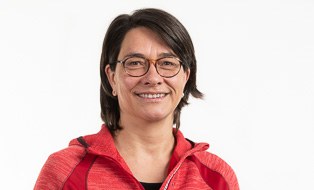 © Michael Kretzschmar
© Michael Kretzschmar
Advice on studying abroad
NameMs Kerstin Unger M.A.
ERASMUS+ in Europe, student mobilities
Send encrypted email via the SecureMail portal (for TUD external users only).
Visiting address:
Fritz Foerster Bau, Office 158 Mommsenstraße 6
01069 Dresden
Postal address:
TUD Dresden University of Technology International Office
01062 Dresden
Office hours:
- Tuesday:
- 09:30 - 11:30
- Telephone Office hours
- 12:30 - 14:30
- Telefonische Sprechzeit
- Thursday:
- 09:30 - 11:30
No office hours/vacation March 10, 2026
 © Sven Ellger/TUD
© Sven Ellger/TUD
Project manager
NameMs Tabea Gösche
ERASMUS+ worldwide
Send encrypted email via the SecureMail portal (for TUD external users only).
Visiting address:
Fritz Foerster Bau, Office 171 Mommsenstraße 6
01069 Dresden
Postal address:
TUD Dresden University of Technology International Office
01062 Dresden


